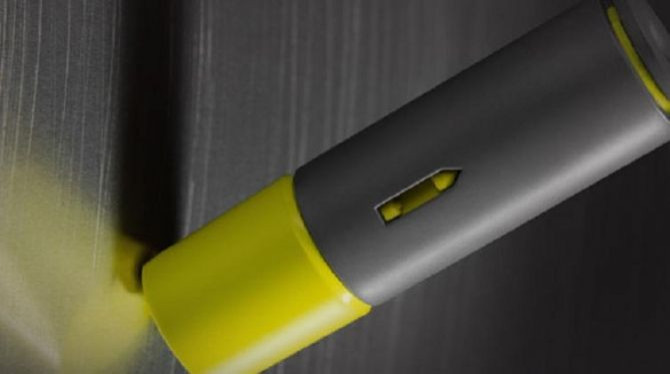FDA to Review Caffeine Inhalant Amid Health Concerns

The U.S. Food and Drug Administration plans to investigate whether an inhalable caffeine product is safe for consumers, after going on sale in January.
Breathable Foods announced its official launch of the pocket-sized AeroShot late last month in Boston and New York, and is also available in France.
Each lip-stick sized inhaler cartridge costs $2.99 is good for six to eight puffs and can be bought at convenience, liquor or online shops. The caffeine inhaler works by pressing the grey and yellow plastic canister to the mouth and pushing down the button, to release a powdery gust of 100 milligrams of caffeine powder, equivalent to the amount in a large cup of coffee, B vitamins, and niacin.
Inventor David Edwards said that the inhalant is safe, and is like caffeine without beverages or pills. Edwards also mentioned that the inhalant does not contain additives like taurine which is commonly used in energy drinks like Red Bull to amplify the stimulating effect of caffeine.
However, U.S. lawmakers have questioned the safety of the product, and while the product didn’t require FDA clearance because it was classified as a dietary supplement New York Democratic Senator Charles Schumer called on the FDA to review the inhalant, fearing that it will be abused by young people and club-goers when drinking alcohol.
FDA considers "dietary supplements" to be products like vitamin C pills at the drug store, some weight loss products and certain energy drinks.
The company making dietary supplements is responsible "for determining that the dietary supplements it manufactures or distributes are safe and that any representations or claims made about them are substantiated by adequate evidence to show that they are not false or misleading," according to the FDA website.
"The truth is, AeroShot is nothing more than a club drug or a party enhancer, designed to give the user the ability to drink until they drop," Sen. Schumer said in a press conference in December 2011 before the caffeine inhalant hit New York stores.
The FDA said it will review information about the product and respond to Sen. Schumer directly.
"The bottom line is this product asks more questions than we have answers and to have it on our shelves before those questions are answered is a serious, serious, serious mistake," he said in a news conference Sunday.
The FDA rarely prohibits a supplement, but the agency had banned the sale of the diet supplement Ephedra in 2004 after deaths and other serious side effects had been reported.



























